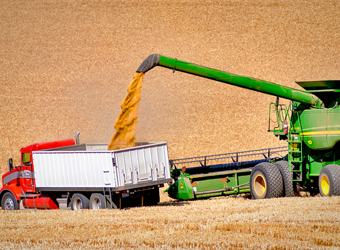Egypt will not reinstate a controversial ban on ergot, the country’s state grain buyer GASC told Reuters on Saturday, despite a court ruling, which could allow a return to the common grain fungus being barred entirely from wheat cargoes.
Traders said the previous zero-tolerance requirement, which the Egyptian agricultural department said was to protect human and plant health, is impossible to fulfill and makes doing business with Egypt too risky.
But an Egyptian court said this week it was planning to overturn a food inspection system launched this year by the world’s largest wheat buyer, which was intended to address this issue and streamline trade after a nearly yearlong row.
The new inspection system sidelined a body called agriculture quarantine, which last year applied a zero-tolerance rule on ergot in wheat cargoes and led traders to boycott the state’s tenders en masse, briefly cutting off the import-dependent country from global grain markets.
Lawyers on the case told Reuters that the ruling, scheduled to be issued on June 13, would restore the agriculture quarantine’s authorities, which could allow them to again ban the fungus entirely from wheat cargoes.
But in its first comments since news of the pending court ruling, GASC Vice Chairman Ahmed Youssef said the court ruling would not mean a return to the zero- tolerance rule.
“The court ruling is procedural and administrative and has nothing to do with specifications,” he told Reuters.
“GASC is sticking to the Egyptian specifications of 2010,” said Youssef, referring to a regulation that permits up to 0.05 percent ergot in wheat imports.
“We have taken this view after consultations with the Agriculture Ministry,” said Youssef, suggesting that the quarantine, which falls under the Agriculture Ministry, may not be permitted to reinstate the ban even if it regains its previous powers.
The new system was imposed by a decree in November that named the General Organization for Export and Import Control (GOEIC), which is part of the Trade Ministry, as the body responsible for inspecting the imports.
Source: Reuters


